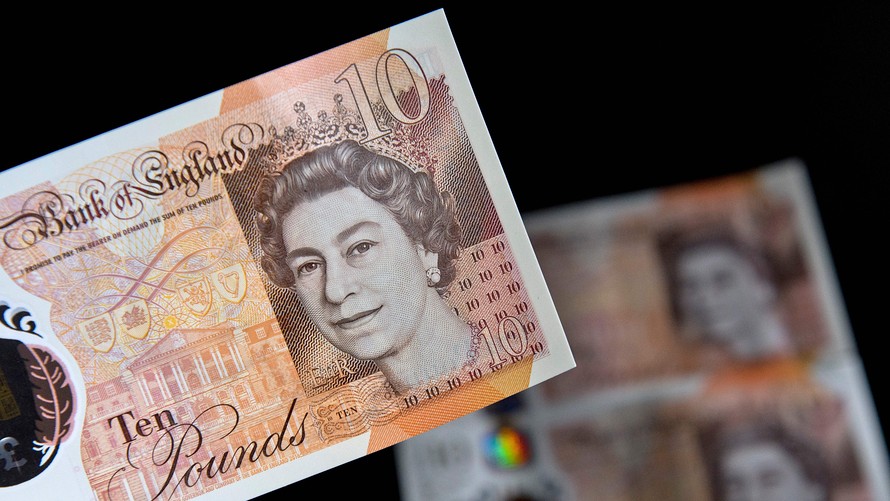The British sterling fell back towards six-month lows against the dollar and the euro on Monday, with traders still nervous about a loss of momentum in the UK economy, the prospect of an interest rate cut and a new prime minister.
At the end of last week, sterling ended a nine-week losing streak against the euro and inched up from a low of $1.2439 hit at the end of June.
However, analysts are largely bearish on the pound after a run of poor economic data and signals from the Bank of England that its next move may be to cut interest rates rather than raise them, as it had previously flagged.
The pound fell 0.5% to $1.2510, while against the euro it declined 0.5% to around 90 pence.
Sterling had hit a six-month low of 90.10 pence per euro last week.
On Tuesday, employment and wage growth data for the month of May will show how the British labour market is holding up. Many economists expect the UK economy will have contracted in the second quarter.
Investors are also waiting for the outcome of the Conservative party leadership contest to replace Prime Minister Theresa May.
Eurosceptic Boris Johnson is the favourite to win against Jeremy Hunt in a vote by Conservative party members. The winner will be crowned leader – and prime minister – by the end of July.
Nomura FX strategist Jordan Rochester said the bank’s analysts had concluded that sterling was “in the value zone for now, vols are cheap and a lot of bad news is priced in, but that’s just for the next six weeks or so”.
“In September, hard Brexit risks will once again be priced in by markets,” he wrote in a research note.
Britain is scheduled to leave the European Union on Oct. 31.
David Madden, analyst at CMC Markets, noted that on a technical basis, sterling/dollar “has been driving lower since mid-March, and if the bearish move continues it might encounter support at $1.2365 region.”












